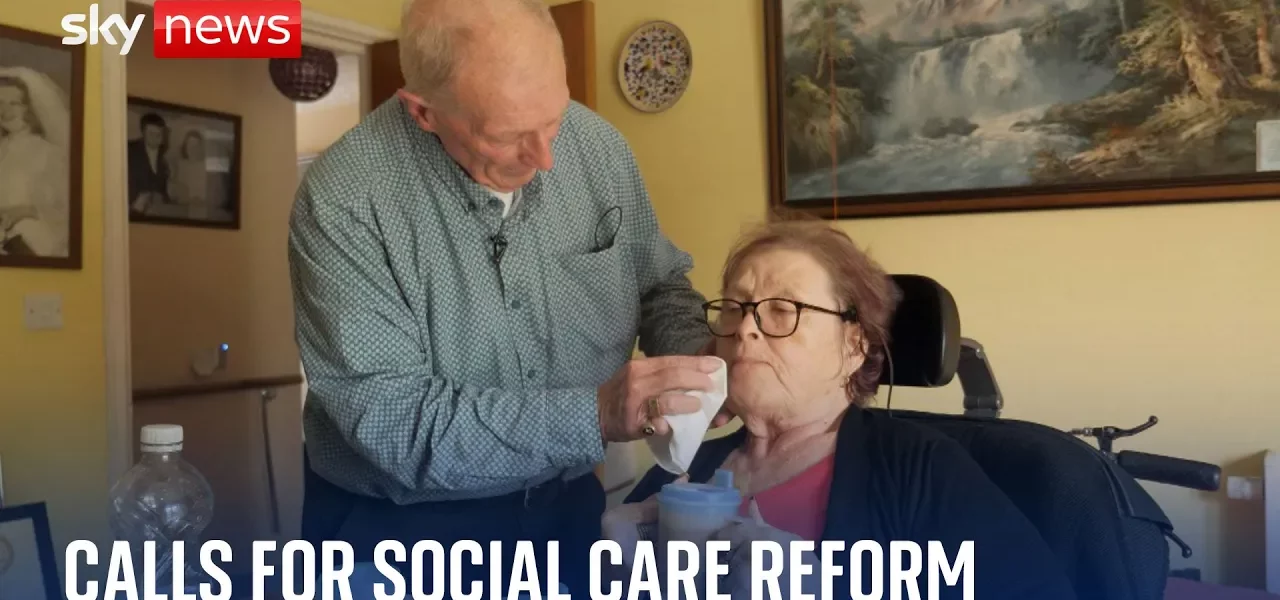Facing the Social Care Crisis: The Story of Norman and Ros

This article delves into the poignant story of Norman and Ros, highlighting the challenges families face within the social care system, the implications of inadequate support, and the urgent need for reform in the sector.
Introduction
The social care system is a lifeline for many families, yet it is often fraught with challenges and inadequacies. The story of Norman and Ros from Harford sheds light on the emotional and financial burdens faced by families dealing with dementia and other health issues. With Norman having to retire early to care for Ros, who battles multiple sclerosis and dementia, their journey exemplifies the struggles many endure within a crumbling social care framework. In this article, we will explore their story, the broader implications for social care, and the urgent call for reforms.
Norman and Ros: A Personal Journey
Norman and Ros’s story is not just a personal narrative; it reflects the experiences of countless families grappling with the realities of care for loved ones. The couple’s challenges highlight several critical aspects of the social care crisis.
Early Retirement and Caregiving
Norman took an early retirement to provide care for Ros, who has been living with multiple sclerosis and dementia. This decision, while noble, came with significant sacrifices:
- Loss of financial stability.
- Emotional toll on both Norman and Ros.
- Impact on family dynamics, as their children grapple with the implications of their parents’ situation.
The Financial Burden
The couple had to sell their home to afford care, a heartbreaking decision that many families face. Norman stated, “My kids learned a long time ago that their inheritance is gone,” reflecting the harsh reality of financial strain caused by caregiving responsibilities.
The State of Social Care
The broader issues within the social care system are underscored by the experiences of families like Norman and Ros. The reliance on overseas labor and the lack of adequate funding have created a precarious situation for care providers and recipients alike.
Staffing Challenges Post-COVID
After the COVID-19 pandemic, many care facilities, including the one in Norfolk where Ros receives care, faced severe staffing shortages:
- 30% of beds were left empty due to lack of staff.
- Increased dependency on overseas workers exacerbated the crisis.
The Need for Increased Funding
Many in the sector argue for higher wages and better working conditions to attract and retain staff. As one care worker noted, “We’ve got to reward them,” emphasizing that the current funding model does not support these necessary changes.
Political Apathy and the Social Care Crisis
The lack of effective political action on social care is disheartening. Despite numerous reports and commissions, such as the one chaired by Sir Andre Dnut, significant reforms have yet to be implemented.
Political Promises and Public Spending
There is a pervasive sense of apathy among politicians regarding social care, primarily due to fears surrounding public spending and taxation:
- Governments have failed to address the urgent needs of the social care sector.
- Opposition parties have not effectively challenged the status quo, leading to a lack of accountability.
The Human Cost of Inaction
With four out of five people predicted to need social care before they die, the implications of inaction are vast. Norman insists, “We should grow up and face it,” highlighting the urgent need for societal acknowledgment of these challenges.
Conclusion
Norman and Ros’s story illustrates the profound challenges of navigating a broken social care system. Their experiences remind us that many families are struggling daily with inadequate support and systemic failures. As we reflect on their journey, it is clear that urgent reforms are necessary to ensure that those who need care receive it without sacrificing their financial stability or dignity. We encourage readers to advocate for changes in the social care system and support initiatives aimed at improving care for all.
For more information on social care reform and related topics, visit our related articles section.
“`




